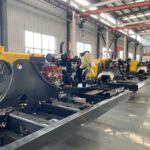Welcome to My Blog!
Before we dive into the content, I’d love for you to join me on my social media platforms where I share more insights, engage with the community, and post updates. Here’s how you can connect with me:
Facebook:https://www.facebook.com/profile.php?id=100066759548969
Now, let’s get started on our journey together. I hope you find the content here insightful, engaging, and valuable.
Introducción
Urban construction projects are often characterized by space constraints, high population density, and the need for minimal disruption. In such environments, small excavators have emerged as essential machinery due to their versatility, maneuverability, and efficiency. In this blog, we will explore the various reasons why small excavators are particularly well-suited for urban construction projects, focusing on their advantages and the specific tasks they excel at.
Las ventajas de Small Excavators in Urban Construction

Maneuverability in Tight Spaces
One of the most significant advantages of small excavators is their ability to operate efficiently in confined spaces. Urban construction sites often have limited space due to existing infrastructure, buildings, and roads. Large machinery may struggle to navigate these tight areas, but a small excavator can easily maneuver around obstacles. This capability reduces the risk of accidents and damage to nearby structures, making them an ideal choice for urban projects.
Versatility Across Different Tasks
Small excavators are incredibly versatile and can be used for various tasks in urban construction. From digging foundations to landscaping and utility installation, these machines can handle a wide range of jobs. They can be equipped with different attachments, such as augers, breakers, and grapples, to perform specific tasks more efficiently. This versatility allows construction companies to use the same machine for multiple purposes, reducing the need for additional equipment and cutting costs.
Reduced Noise and Environmental Impact
Urban areas are sensitive to noise and environmental disruptions, making it essential to use equipment that minimizes these factors. Small excavators are generally quieter than larger machines, which is crucial when working near residential areas, schools, or hospitals. Additionally, many small excavators are now available with electric or hybrid engines, reducing emissions and the overall environmental impact. This makes them a more sustainable choice for urban construction projects, aligning with the increasing demand for eco-friendly construction practices.
Rentabilidad
Another advantage of small excavators is their cost-effectiveness. They are generally less expensive to purchase, operate, and maintain compared to larger excavators. Their fuel efficiency and lower operating costs make them an economical choice for contractors, especially for small to medium-sized projects. Moreover, the ability to transport them easily between sites further reduces logistical expenses, adding to their overall cost-effectiveness in urban construction.
Safety and Ease of Use
Safety is a paramount concern on any construction site, and small excavators offer several safety advantages. Their compact size allows for better visibility and control, reducing the likelihood of accidents. Additionally, they are easier to operate, with simpler controls and less training required for operators. This ease of use makes them suitable for projects where quick deployment and operation are necessary, ensuring that construction work proceeds smoothly and safely.
Table: Key Features of Small Excavators for Urban Construction
| Feature | Benefit | Impact on Urban Projects |
|---|---|---|
| Compact Size | Allows for operation in confined spaces | Ideal for navigating tight urban construction sites |
| Versatile Attachments | Can be equipped with various tools for different tasks | Reduces the need for multiple machines, increasing efficiency |
| Reduced Noise Levels | Operates more quietly than larger machinery | Minimizes disruption in noise-sensitive urban areas |
| Eficiencia de combustible | Consumes less fuel compared to larger excavators | Lowers operational costs and environmental impact |
| Funciones de seguridad mejoradas | Easier to control with better visibility | Reduces the risk of accidents and enhances site safety |
| Ease of Transport | Lightweight and easy to move between sites | Reduces transportation costs and logistical challenges in urban areas |
Small Excavators vs. Large Excavators: Which Is Better for Urban Construction?

When comparing small excavators to their larger counterparts, it is essential to consider the specific needs of urban construction projects. While large excavators may offer more power and capacity, they are not always the best choice for urban settings. Small excavators excel in areas where space is limited, and precision is required. Their ability to perform a wide range of tasks efficiently in such environments often makes them the superior choice.
For example, in urban residential construction, where minimizing disruption is key, a small excavator’s reduced noise levels and compact footprint are significant advantages. Similarly, for projects that require frequent movement between sites, the ease of transporting a small excavator outweighs the benefits of using a larger machine.
Conclusión
Small excavators have proven to be an indispensable asset in urban construction projects. Their compact size, versatility, and cost-effectiveness make them the ideal choice for navigating the challenges of building in densely populated areas. As urbanization continues to grow, the demand for small excavators is expected to rise, cementing their role as a critical tool in the construction industry. Whether you’re a contractor, developer, or project manager, understanding the benefits of small excavators can help you make informed decisions that lead to successful urban construction projects.
Preguntas Frecuentes
What is a small excavator, and how does it differ from larger models?
A small excavator, often called a mini excavator, is a compact, versatile construction machine designed for tasks in confined spaces. It differs from larger models by being more maneuverable, easier to transport, and more fuel-efficient.
What types of jobs can a small excavator handle?
Small excavators are ideal for tasks like digging trenches, landscaping, utility installation, demolition, and small-scale construction projects. Their versatility allows them to perform various tasks with different attachments.
How much does a small excavator typically weigh?
The weight of a small excavator typically ranges from 1 to 10 tons, depending on the model and its specifications. This lighter weight makes them easier to transport and operate in urban environments.
Can a small excavator be used for heavy-duty tasks?
While small excavators are designed for lighter tasks, they can handle some heavy-duty work when equipped with the right attachments. However, they may not be as efficient as larger excavators for extremely heavy or large-scale tasks.
What attachments are available for a small excavator?
Small excavators can be equipped with various attachments, including buckets, augers, hydraulic breakers, grapples, and thumbs. These attachments enhance the machine’s versatility and allow it to perform a wide range of tasks.
Are Mini excavators fuel-efficient?
Yes, mini excavators are generally more fuel-efficient than larger models, making them a cost-effective choice for contractors. Their smaller engines consume less fuel, which is beneficial for long-term projects.
What are the benefits of using a Mini excavator in urban construction?
Mini excavators are ideal for urban construction due to their compact size, maneuverability, reduced noise levels, and lower emissions. These features make them suitable for working in densely populated areas with minimal disruption.
How easy is it to transport a Mini excavator?
Mini excavators are relatively easy to transport due to their compact size and lighter weight. They can often be loaded onto trailers or flatbeds and moved between job sites without the need for special permits.
How do I maintain a small excavator for optimal performance?
Regular maintenance, such as checking fluid levels, inspecting tracks and attachments, and following the manufacturer’s service schedule, is essential for keeping a mini excavator in optimal working condition.
What is the average lifespan of a Mini excavator?
The average lifespan of a mini excavator depends on usage, maintenance, and operating conditions. With proper care, a small excavator can last for thousands of hours of operation, typically between 6,000 to 10,000 hours.


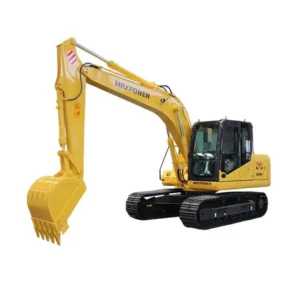
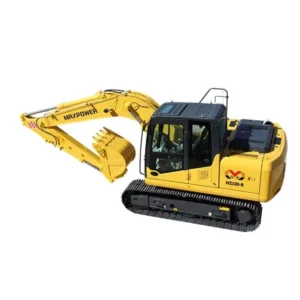
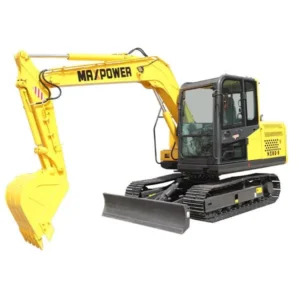
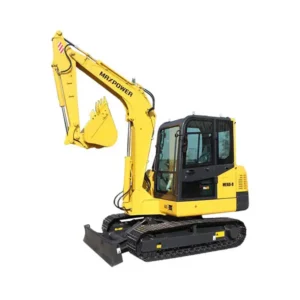
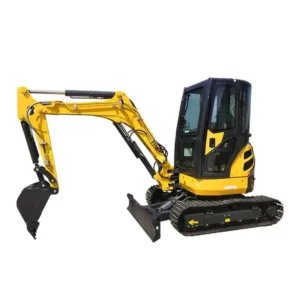
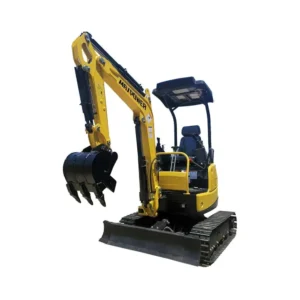





-150x150.webp)
